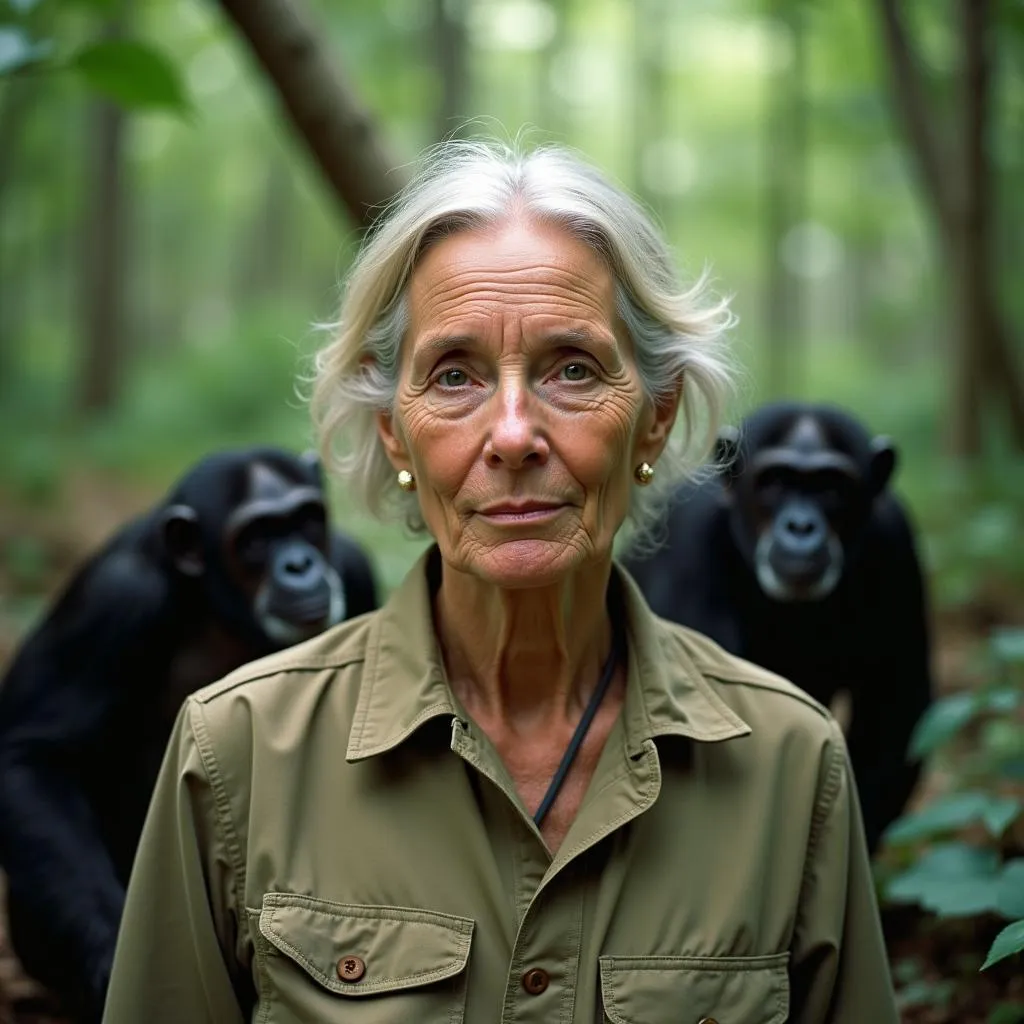Environmental conservation is a topic that frequently appears in IELTS Speaking tests, reflecting its global importance. This article will guide you through answering questions about individuals dedicated to protecting our planet, helping you achieve a high score in your IELTS Speaking exam.
Part 1: Introduction and Interview
In this section, the examiner may ask general questions about environmental conservation. Here’s an example question with a suggested answer:
Examiner: Do you think it’s important to protect the environment?
Candidate (Band 8-9 response): Absolutely, I believe environmental protection is crucial for our planet’s future. Not only does it help preserve biodiversity and natural resources, but it also plays a vital role in mitigating climate change. By safeguarding our environment, we’re essentially securing a sustainable future for generations to come.
Part 2: Long Turn
Here’s a sample cue card related to the topic:
Describe a person who is passionate about environmental conservation
You should say:
- Who this person is
- What they do for environmental conservation
- How you know about this person
- And explain why you think this person is passionate about environmental conservation
Sample Answer (Band 8-9)
I’d like to talk about Jane Goodall, a renowned primatologist and anthropologist who has dedicated her life to environmental conservation, particularly focusing on chimpanzees and their habitats.
Jane Goodall’s groundbreaking work began in the 1960s when she embarked on a pioneering study of chimpanzees in Gombe, Tanzania. Her revolutionary approach of observing chimpanzees in their natural habitat led to numerous discoveries about their behavior, including their use of tools, which was previously thought to be unique to humans.
I first learned about Jane Goodall through a documentary showcasing her remarkable work with chimpanzees. Since then, I’ve followed her career closely, reading her books and watching her interviews.
What truly sets Jane apart is her unwavering commitment to environmental causes. She founded the Jane Goodall Institute, which works tirelessly to protect chimpanzees and their habitats. Moreover, she’s a UN Messenger of Peace, using her platform to advocate for environmental conservation on a global scale.
Her passion is evident in the way she speaks about nature with such reverence and urgency. Even in her late 80s, she continues to travel the world, giving lectures and inspiring people to take action for the environment. Her lifelong dedication and the tangible impact she’s made on both wildlife conservation and environmental awareness clearly demonstrate her deep-rooted passion for the cause.

Follow-up Questions
Examiner: How has this person influenced others?
Candidate (Band 8-9): Jane Goodall has had a profound impact on countless individuals worldwide. Through her institute’s programs, she has inspired a new generation of conservationists and researchers. Her Roots & Shoots program, for instance, empowers young people in over 100 countries to become environmental stewards. Furthermore, her eloquent speeches and writings have raised global awareness about the importance of protecting our planet’s ecosystems and biodiversity.
Part 3: Two-way Discussion
Examiner: Do you think individuals can make a significant difference in environmental conservation?
Candidate (Band 8-9): Absolutely, I firmly believe that individuals can play a crucial role in environmental conservation. While it’s true that large-scale changes often require governmental or corporate action, the collective impact of individual efforts should not be underestimated.
For instance, personal choices such as reducing plastic use, adopting a plant-based diet, or opting for sustainable transportation can significantly reduce one’s carbon footprint. Moreover, individuals can influence their communities and even policy-makers through activism, education, and leading by example.
We’ve seen numerous cases where grassroots movements, started by passionate individuals, have led to substantial environmental policy changes. Greta Thunberg’s climate strikes are a prime example of how one person’s actions can spark a global movement.
Furthermore, in the age of social media, individuals have unprecedented power to raise awareness and mobilize others for environmental causes. A single viral post about ocean pollution or deforestation can reach millions, potentially catalyzing widespread action.
Ultimately, while the challenges we face are immense, I believe that the cumulative effect of individual actions is not only significant but essential in the fight against environmental degradation.
Key Vocabulary and Phrases for High Scores
-
Biodiversity /ˌbaɪəʊdaɪˈvɜːsəti/ (noun): The variety of plant and animal life in a particular habitat.
Example: Preserving biodiversity is crucial for maintaining healthy ecosystems. -
Sustainability /səˌsteɪnəˈbɪləti/ (noun): The ability to maintain at a certain rate or level without depleting natural resources.
Example: Many companies are now focusing on sustainability in their business practices. -
Ecosystem /ˈiːkəʊˌsɪstəm/ (noun): A biological community of interacting organisms and their physical environment.
Example: Coral reefs are complex ecosystems that support a wide variety of marine life. -
Carbon footprint /ˈkɑːbən ˈfʊtprɪnt/ (noun): The amount of carbon dioxide released into the atmosphere as a result of one’s activities.
Example: By using public transportation, we can significantly reduce our carbon footprint. -
Advocacy /ˈædvəkəsi/ (noun): Public support for or recommendation of a particular cause or policy.
Example: Environmental advocacy groups play a crucial role in raising awareness about climate change.
Examiner’s Advice
To score high in the IELTS Speaking test when discussing environmental conservation:
- Use a range of advanced vocabulary related to the environment and conservation.
- Provide specific examples to support your points, such as mentioning real environmental initiatives or influential conservationists.
- Express your opinions clearly and confidently, using appropriate discourse markers.
- Demonstrate your knowledge of current environmental issues and solutions.
- Practice speaking about various aspects of environmental conservation to improve fluency and coherence.
By following these guidelines and incorporating the sample answers and vocabulary provided, you’ll be well-prepared to discuss environmental conservation in your IELTS Speaking test. Remember, passionate and well-informed responses will help you achieve a high score.